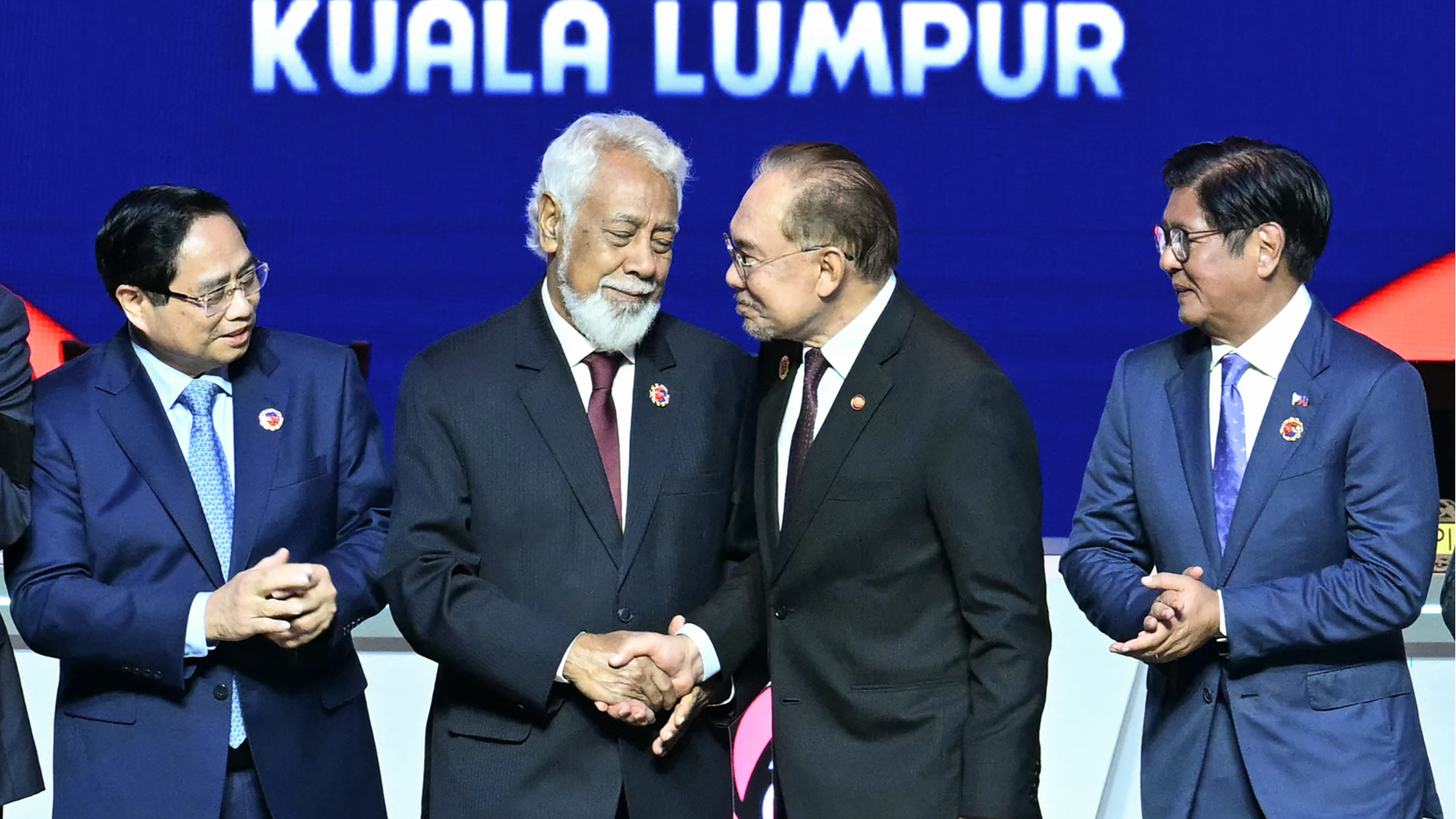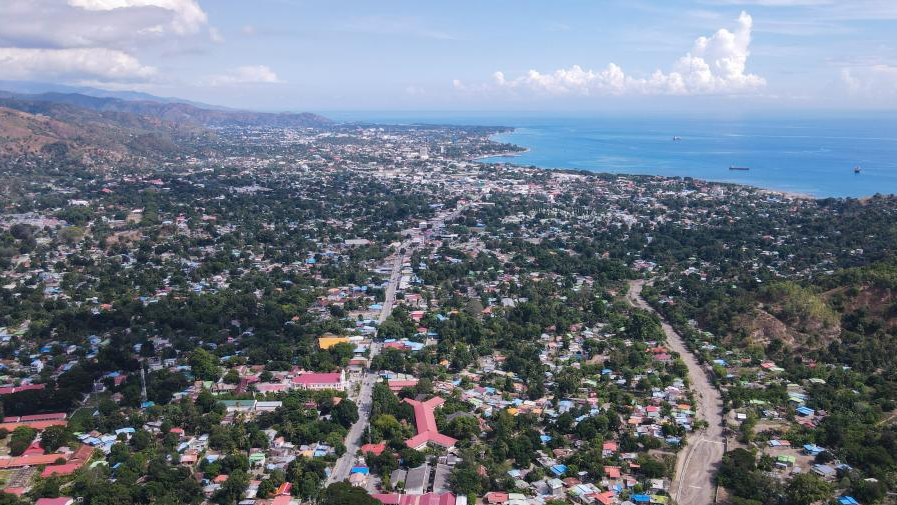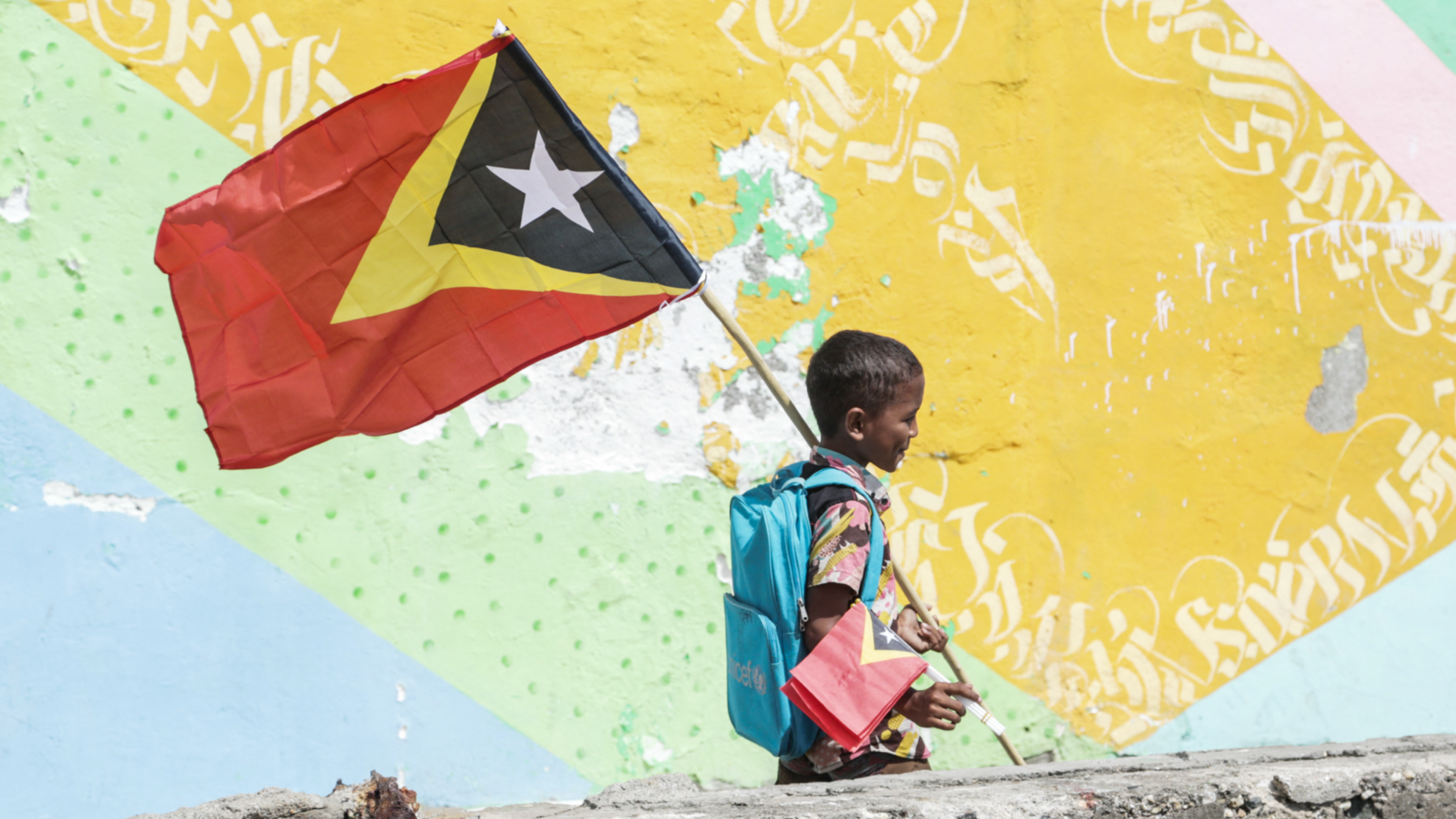
As the newest member of the Association of Southeast Asian Nations (ASEAN), Timor-Leste is set to be heard a little louder in the international arena, opening up more opportunities for one of the region’s least developed economies, analysts said.
Timor-Leste formally applied for ASEAN membership in 2011 and became the regional bloc’s 11th member during the 47th ASEAN Summit held in October in Kuala Lumpur, Malaysia.
Timor-Leste’s ASEAN membership comes at a time when the regional bloc is grappling with geopolitical tensions and rising protectionism.
Despite these challenges, analysts note that ASEAN offers Timor-Leste a way to diversify its economy and enhance its visibility in global affairs.
For Joao da Cruz Cardoso, an independent analyst based in Dili, the Timorese capital, ASEAN membership amplifies Timor-Leste’s voice, ensuring its relevance even if it is just a small island nation.
“ASEAN ensures that Timor-Leste’s opinion carries the same weight as the other members regardless of geographical size and economic standing,” Cardoso told China Daily.
ALSO READ: MSMEs can boost Timor-Leste growth, drive diversification
Noting that economic diversification is a domestic matter, Cardoso said ASEAN membership can help pull Timor-Leste away from oil-centered development to concentrate on developing other sectors like organic coffee, ecotourism, and the blue economy.
“If used well, these sectors present lucrative opportunities for economic growth, including providing employment opportunities,” Cardoso said.
Timor-Leste’s economy is mainly powered by its oil and gas reserves, with petroleum products accounting for about 90 percent of its total exports. Other significant export include coffee, sandalwood and seafood. Most of Timorese exports go to China, Indonesia and Thailand.
Proceeds from the Timorese offshore oil and gas fields were stockpiled in the Petroleum Fund, which stood at over $18 billion by the end of 2024. This is roughly equal to 10 times the Timorese economy’s annual GDP, according to estimates made by the International Monetary Fund (IMF). Despite this huge sovereign wealth fund, the IMF notes that Timor-Leste faces “mounting development need” as growth of per-person income has stagnated the private sector needs diversification, and progress on reducing poverty and malnutrition has stalled.
READ MORE: ASEAN, Timor-Leste both benefit from new membership
Timor-Leste is also widely-perceived as a geographically strategic owing to its location – it shares a land border with Indonesia and a maritime border with Australia, making it at the center of regional geopolitics. The deep-water Ombai-Wetar Strait, a vital shipping route, is located along Timor-Leste’s northern coast.
Khoo Ying Hoi, an associate professor of human rights and international relations at the University of Malaya in Kuala Lumpur, said ASEAN gives Timor-Leste access to both economic and security benefits.
She said that as a member of ASEAN, Timor-Leste can now join regional meetings, which can boost the nation’s diplomatic presence and anchor it in a regional security order.
“The more immediate benefit that I see, however, lies in the knowledge transfer and also the various development cooperation programs that can help Dili to strengthen its domestic regulatory and institutional capacity,” Khoo said.

She said ASEAN membership will also boost the nation’s business credentials as it signals to investors that there is potential in Timor-Leste.
The country can also access ASEAN’s “extensive economic network”, such as a possible membership of the Regional Comprehensive Economic Partnership (RCEP), which all other ASEAN members are part of.
While ASEAN membership will not automatically make Timor-Leste a part of the RCEP, Khoo said being in ASEAN will at least allow Timor-Leste to start the application process to join the world’s biggest free trade pact.
Timor-Leste is the youngest country in Asia, having gained full independence in 2002 after years of colonization and occupation. With a GDP per capita of just over $1,500, Timor-Leste is also designated as a Least Developed Country by the UN.
This year’s GDP growth expected to expand by 3.8 percent on the back of improved budget execution from strengthened legal and regulatory frameworks, higher public capital investment, and steady remittance inflows, according to the Asian Development Bank (ADB).
The ADB said that as the latest ASEAN member, Timor-Leste is expected to benefit from deeper economic integration.
The Malaysia External Trade Development Corporation (MATRADE) is leading a business delegation to Dili from Nov 17 to 21 to strengthen Malaysian-Timorese economic ties following Timor-Leste’s accession to ASEAN.
A total of 19 Malaysian companies, including those in education, the food industry, and oil and gas-related services, are joining the delegation, according to a MATRADE press release.

Guteriano Neves, an independent policy analyst based in Dili, said ASEAN presents a big market and source of investment for Timor-Leste. However, Neves said attracting investments would require institutional and governance reforms.
“It would require a lot of work at the domestic level. It would require a shift in the development strategy and mindset of the policy makers and the framework of policy making in the country,” Neves said.
Neves said that Timor-Leste is also bringing something to the table — by sharing its experience of building “a successful democratic and peaceful country despite development challenges”.
Khoo, of the University of Malaya, said despite being one of the poorest countries in ASEAN, Timor-Leste is also its “most idealistic” member.
“What makes Timor-Leste different is that it has a surplus of moral and civic convictions because of the historical struggles that are quite unique in this 21st century,” she said.
“And it is also one of the few countries in the region that emerged from the violent conflict,” Khoo said, noting that Timor-Leste managed to overcome its violent past and now strongly upholds international law, peaceful coexistence, and community values.
Contact the writer at prime@chinadailyapac.com


